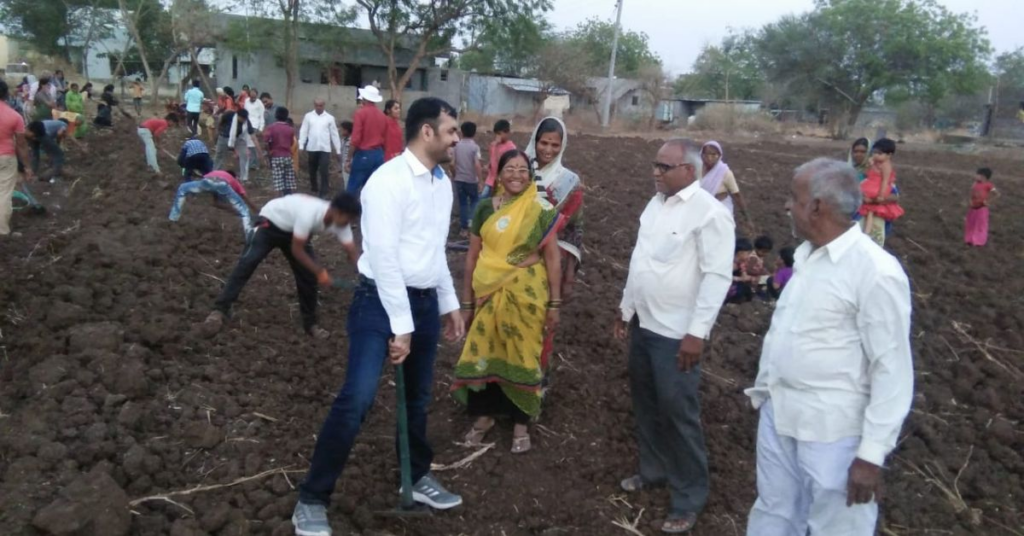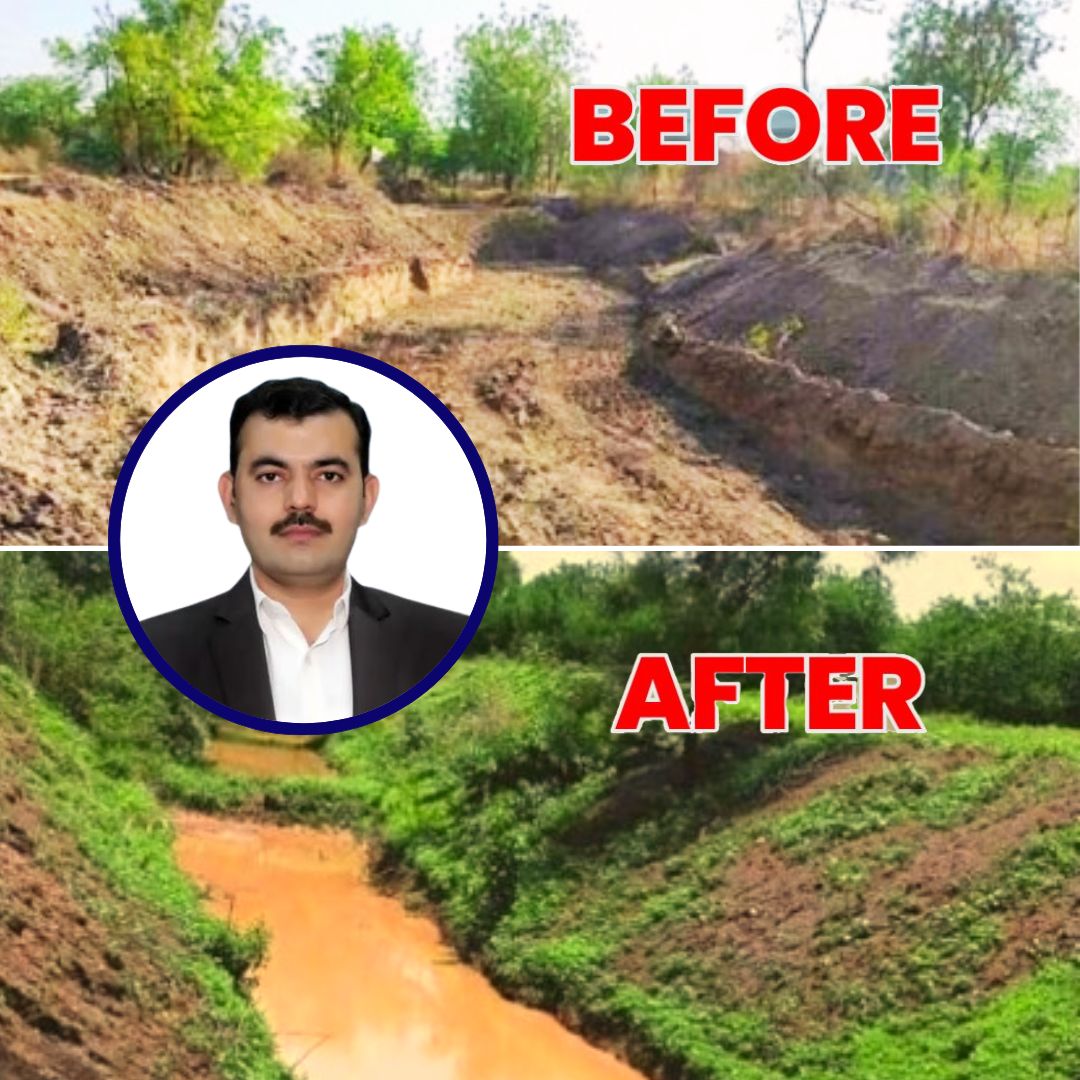Dr. Ujjwal Kumar Chavan, a former IRS officer from the 2010 batch, has spearheaded a transformative water conservation initiative in Maharashtra. His project, “Mission 500 Crore Litre Water Reservoir,” launched in 2017, has created reservoirs storing over 500 crore litres of water, benefiting thousands of farmers across 204 villages.
Chavan’s journey from a seasoned financial investigator to a grassroots leader has earned him international recognition, including at the United Nations Water Conference, and inspired community-led movements nationwide.

From Bureaucracy to Grassroots Leadership: A Visionary’s Journey
Dr. Ujjwal Kumar Chavan, with over a decade of experience in tax administration and anti-money laundering investigations, served as Deputy Director at the Enforcement Directorate and Joint Commissioner of Income Tax. Born in a small village in Maharashtra, Chavan’s connection to rural life and his understanding of the challenges faced by farmers deeply influenced his decision to leave his lucrative career.
Moved by the plight of farmers facing relentless droughts in Maharashtra, he launched “Mission 500 Crore Litre Water Reservoir” in Dhamangaon village, Jalgaon district. This initiative marked a significant shift from his bureaucratic role to grassroots leadership, focusing on empowering rural communities through sustainable water management.
Chavan holds a strong educational background, having completed his studies in law and economics, which has been instrumental in shaping his approach to social work.
The Impact and Expansion of the Movement
Chavan’s model emphasizes community participation, with trained volunteers called ‘Panch Patils’ overseeing water conservation across multiple villages. These leaders conduct awareness campaigns, select village heads (Gaon Pramukhs), and collaborate with farmers to execute projects.
The initiative has not only created reservoirs but also repaired farm roads spanning 20 km and planted over 45,000 trees, further enhancing rural infrastructure. Rivers that previously ran dry by October now flow until March, enabling farmers to harvest two crops annually—Kharif and Rabi.
This transformation has doubled farmers’ incomes and revived groundwater levels by up to 10 feet, significantly improving socio-economic conditions. Additionally, the project has led to the creation of employment opportunities in rural areas, reducing migration to cities.

The Impact and Expansion of the Movement
Chavan’s model emphasizes community participation, with trained volunteers called ‘Paach Patils’ overseeing water conservation across multiple villages. These leaders conduct awareness campaigns, select village heads (Gaon Pramukhs), and collaborate with farmers to execute projects.
The initiative has not only created reservoirs but also repaired farm roads spanning 20 km and planted over 45,000 trees, further enhancing rural infrastructure. Rivers that previously ran dry by October now flow until March, enabling farmers to harvest two crops annually—Kharif and Rabi.
This transformation has doubled farmers’ incomes and revived groundwater levels by up to 10 feet, significantly improving socio-economic conditions.
Founders’ Vision and Mission
Dr. Ujjwal Kumar Chavan’s vision is to empower rural communities by providing them with sustainable water management solutions. He believes that by involving local residents in the decision-making process and execution of projects, long-term success and sustainability can be achieved.
His mission is not only to address immediate water needs but also to create a model that can be replicated across India, helping to combat droughts and improve agricultural productivity nationwide. Chavan’s leadership has inspired a new generation of social entrepreneurs and activists, who are now working towards creating similar impacts in their regions.

Background and Context: Understanding Maharashtra’s Drought Crisis
Maharashtra has historically faced severe droughts, impacting agricultural productivity and leading to farmer suicides. The state’s water crisis is exacerbated by inadequate rainfall and inefficient water management systems. Against this backdrop, Chavan’s initiative has been a beacon of hope.
His approach aligns with the state government’s Jalyukt Shivar Abhiyan, which aims to make Maharashtra drought-free through water conservation and watershed development. By integrating community-driven projects with government schemes, Chavan has demonstrated how collaborative efforts can yield sustainable solutions to environmental challenges.
His work has also inspired other states to adopt similar models, fostering a broader movement towards water conservation.
The Logical Indian’s Perspective
Dr. Ujjwal Kumar Chavan exemplifies the transformative power of individual resolve and collective action in addressing systemic challenges like droughts. His shift from bureaucracy to grassroots leadership highlights the importance of empathy and collaboration in fostering sustainable development.
By empowering communities and restoring ecological balance, Chavan’s work inspires hope for a brighter future. How can we ensure such initiatives receive consistent support to combat climate challenges? Share your thoughts below!












